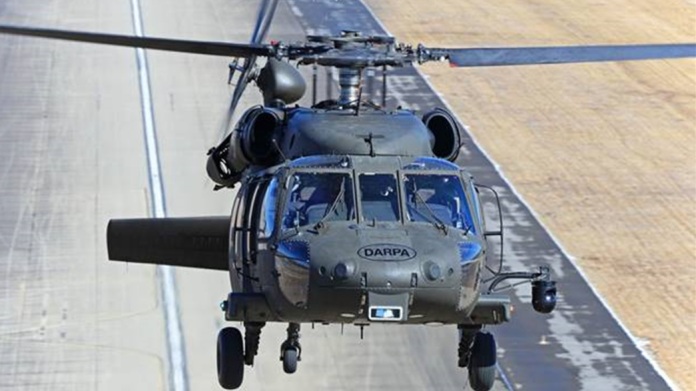In a first, a Black Hawk helicopter made a fully autonomous flight without a pilot onboard at the US Army installation at Fort Campbell, Kentucky. The first test flight took place on on February 5, and later on February 7. It was conducted in partnership between Lockheed Martin Sikorsky and the Defence Armed Research Projects Agency (DARPA), as per a press release.
DARPA shared a photograph of the helicopter and wrote, “It might look disconcerting to see a @LockheedMartin Martin @Sikorsky Black Hawk helicopter flying itself…but, don’t worry, we’ve got this! DARPA’s ALIAS technology just enabled the first ever flight of this iconic chopper…with nobody onboard.” An impressed netizens had a caveat, “Good luck with the testing! Please make sure there are strong safety features, especially on the weapons.”
It might look disconcerting to see a @LockheedMartin Martin @Sikorsky Black Hawk helicopter flying itself…but, don’t worry, we’ve got this! DARPA’s ALIAS technology just enabled the first ever flight of this iconic chopper…with nobody onboard. https://t.co/El9GkznLmw pic.twitter.com/TvxrmHQVLH— DARPA (@DARPA) February 8, 2022
Good luck with the testing!
Please make sure there are strong safety features, especially on the weapons. #forward #science #skynet— Results With Drones (@dronepodcast) February 8, 2022
The future is now pic.twitter.com/mBpBZkWmz2— D4rp4chief (@d4rp4chief) February 8, 2022
A video shared by Reuters on Twitter showed the helicopter hovering sans a pilot. The helicopter lands smoothly without any glitches in the video. The DARPA Aircrew Labor In-Cockpit Automation System (ALIAS) enables high levels of automation into existing aircraft and reduces crew operations.
WATCH: A Black Hawk helicopter flew for the first time without pilots in Kentucky. The aircraft flew for 30 minutes through a simulated cityscape avoiding imagined buildings before performing a perfect landing pic.twitter.com/SD01LWhUZe— Reuters Asia (@ReutersAsia) February 12, 2022
“With reduced workloads pilots can focus on mission management instead of the mechanics,” Stuart Young, program manager in DARPA’s Tactical Technology Office was quoted as saying in the press release. “This unique combination of autonomy software and hardware will make flying both smarter and safer,” he added.
“With ALIAS, the Army will have much more operational flexibility. This includes the ability to operate aircraft at all times of the day or night, with and without pilots, and in a variety of difficult conditions, such as contested, congested, and degraded visual environments,” he further said.















